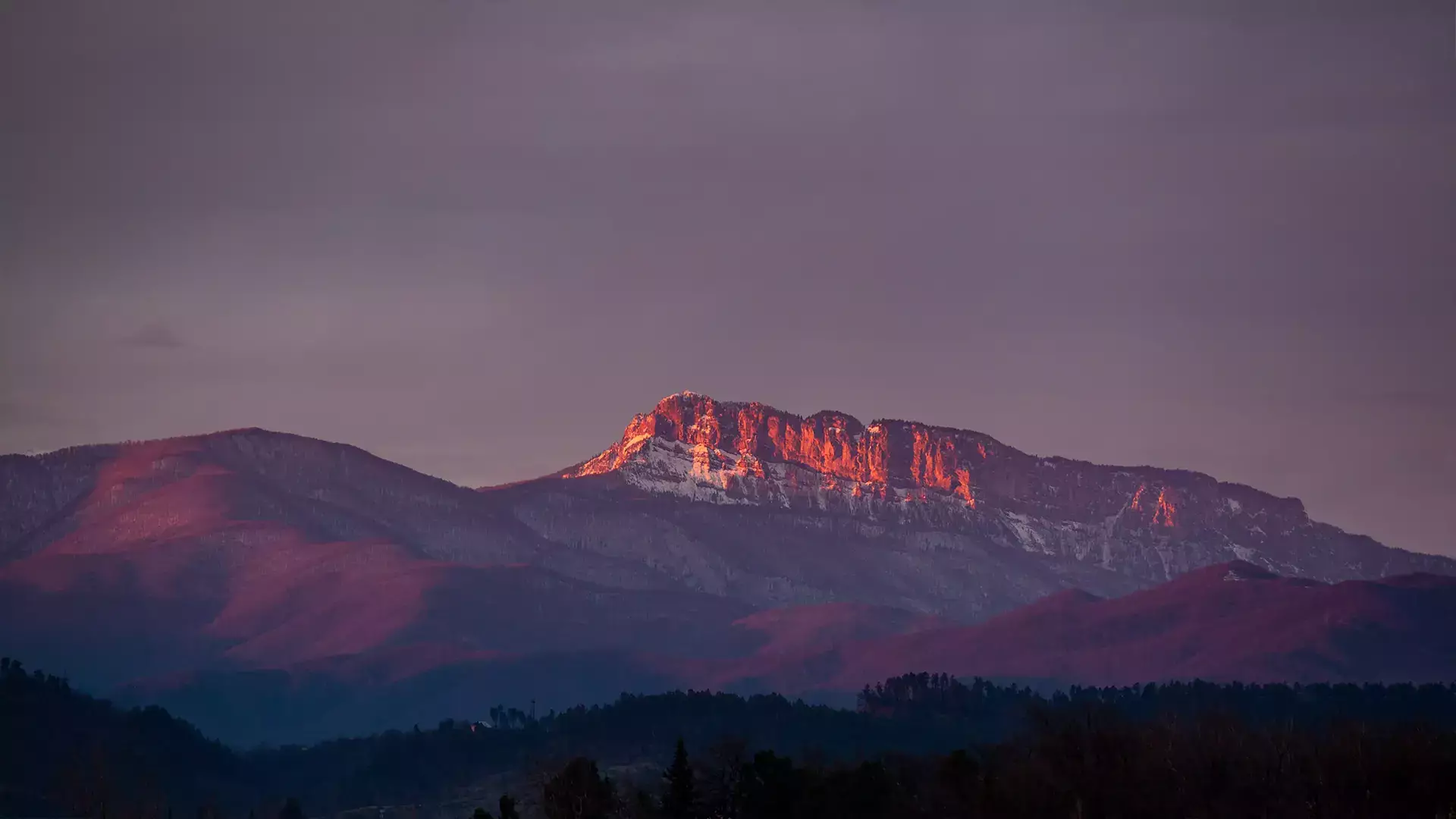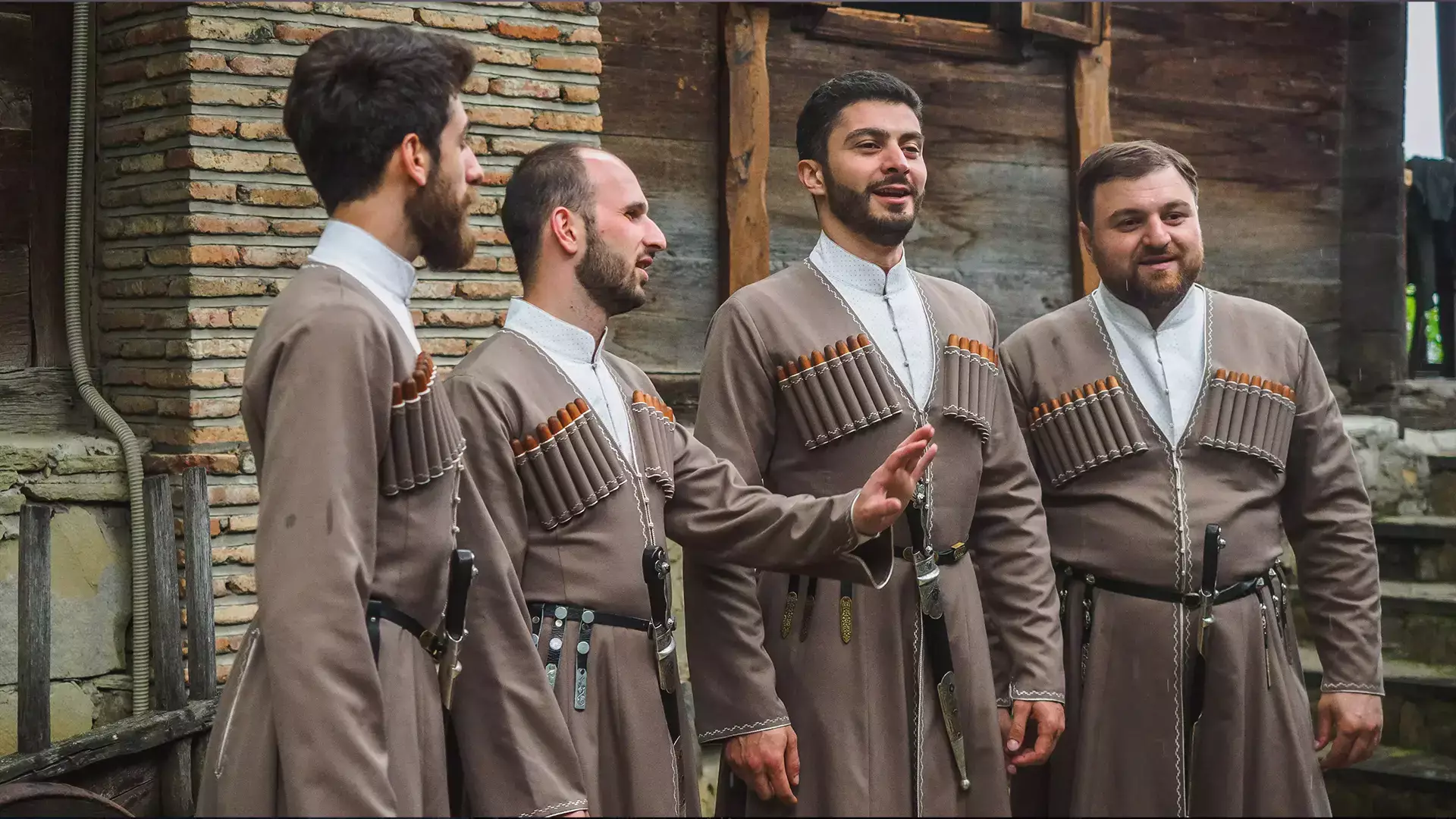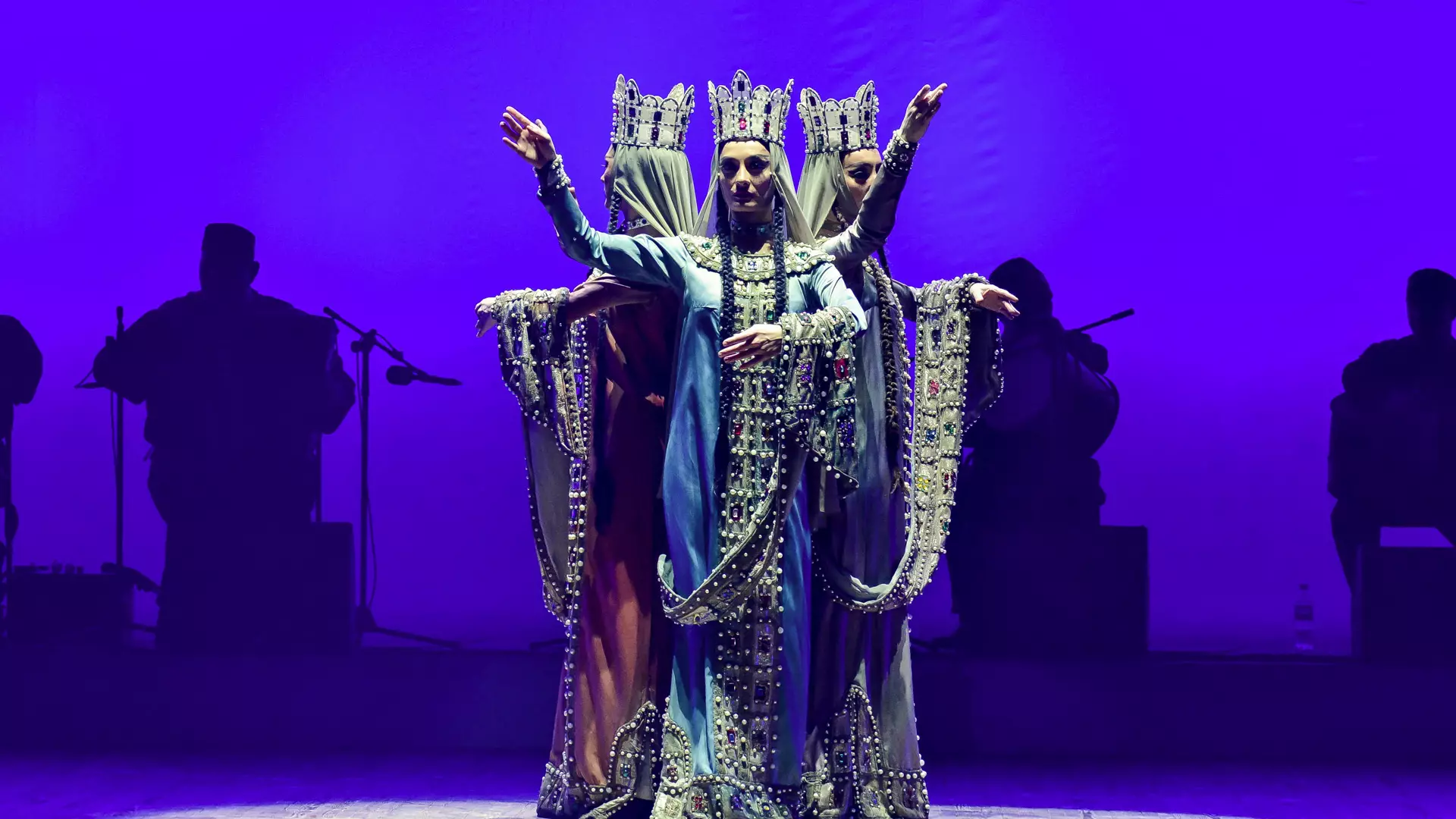The Unique Georgian Folklore
You might be surprised that these and many other elements of global culture have their roots in Georgian folklore.
The Beginning of the Myths
While you may already be familiar with the tale of how Prometheus stole fire from the gods to give it to humanity, the fact that this myth is related to an old Georgian tale is less known.
The name Amirani may not be familiar to you, but many of his deeds were later replicated in the mythology of other nations. He was famously swallowed by a whale and had to cut his way out, just as Hercules did in Greek mythology, and also kidnapped a maiden made of heavenly fire, for which his punishment was to be chained to Khvamli Mountain where an eagle would tear at his chest for all eternity. This, of course, is the inspiration for the later Prometheus myth.
You may also be familiar with the name of Medea, the daughter of the king of Colchis and a famous healer. She helped her lover Jason, the leader of the Argonauts, to steal the Golden Fleece and met a tragic end because of his actions. Her name, Medea, would go on to form the root of the word “medicine” in honor of her healer abilities.
The more you learn about Georgian mythology, the more you will see its influence on later cultures. Georgia’s rich history of oral folklore has preserved these stories to the present day, and any Georgian will proudly tell you these stories over a meal and a glass of wine.
Poetry and Folk Tales
Don’t be fooled into thinking that Georgian folklore is just limited to myths and legends. You’ll be surprised by the depth of emotion that suffuses the rhythms of Georgian folk poetry. From the dizzying heights of love to the crippling pain of vanity, Georgian poetry is unquestionably beautiful.
Anyone who finds themself at a supra in the mountains will be overjoyed by the tradition of poetic disputations, which we call "kapiaoba" and "shairoba."
The wisdom transmitted by Georgian proverbs deserves its attention, and you will be amazed to hear Georgian folk tales, which teach the listener about cleverness, loyalty, heroism, and the victory of good over evil.
A Georgian Song That Flew Up into the Sky
Did you know that a Georgian song travels the universe even now? The traditional folk song Chakrulo was performed live by Georgians in the polyphonic style and has since left the earth to travel around the solar system in the Voyager-2 satellite.
Each region of Georgia boasts its unique style of singing. You absolutely must listen to the Kartli-Kakhetian “Mravalzhamieri”, the Mingrelian “Nana”, the Gurian “Khasanbegura” and “Krimanchuli” (a round performed with a countertenor backing), the Svan “Lile”, the Imeretian “Naduri”, and many other exemplars of Georgian folklore, whose polyphony has been recognized as a masterpiece of human oral folklore and inscribed on the list of Intangible Cultural Heritage by UNESCO.
Traditional Georgian songs are performed in up to fifteen dialects across every region of Georgia, but all have their source in ancient times.
As a Christian nation, Georgia also has a rich history of hymnal music. A visit to any Georgian church will treat you to the hauntingly beautiful melodies of praise being sung.
The Genius of Georgia, Disseminated through Dance
The brilliant Georgian writer Grigol Robakidze called Georgian dance “the genius of Georgia, disseminated through dance”, and it is an apt description! The spirit of the nation and even every letter of our alphabet is expressed through Georgian dance. The country will quite literally tell you Georgia's entire history through the medium of dance.
“Kartuli”, “Mtiuluri”, “Baghdaduri”, “Jeirani”, “Kintouri”, “Khanjluri”, “Gandagana”, “Samaia”, and “Khorumi” are only a small selection of Georgian folk dances. Each dance has a history that goes back centuries, while their choreography has been raised to the level of modern classical ballet. Also to be noted are the modern variants of traditional Georgian dances, new dances that are impressive fusions of Georgia’s past and present.
A performance of Georgian folk dance and song performed in national dress makes for a gorgeous sight, which is why you’ll never find less than a packed house whenever Georgians are ready to perform them on the world’s largest stages.
This has been but a small tour through Georgian folklore. However, there is always more to discover. You can best experience this depth by coming here, to Georgia!
Cookie Policy



